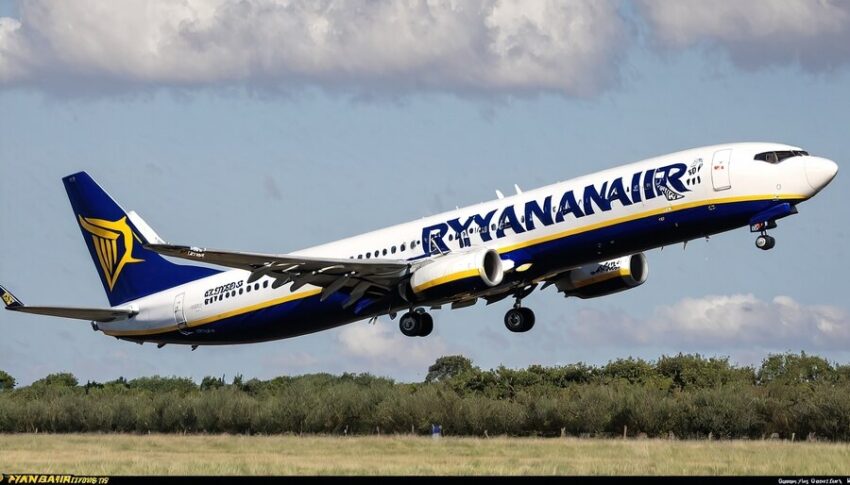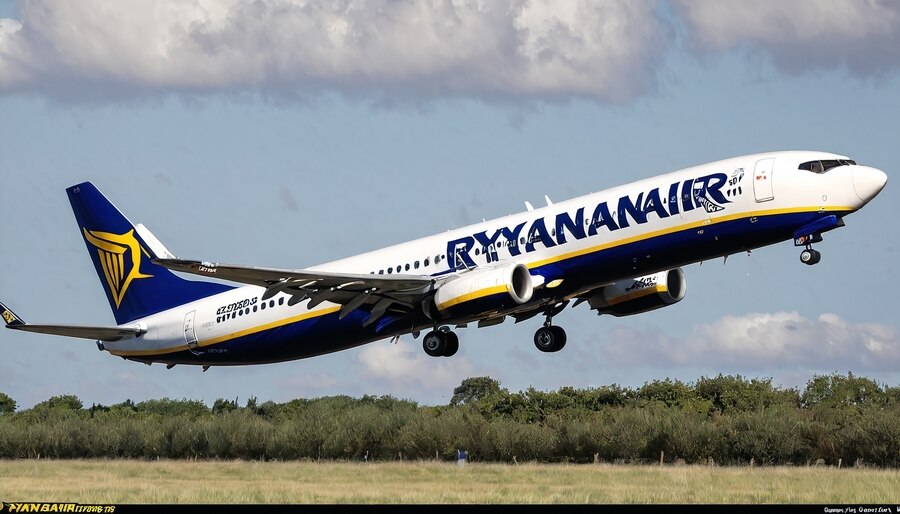 Home » AIRLINE NEWS » Ryanair Reacts To High Access Fees With Major Cutbacks At Berlin Airport
Home » AIRLINE NEWS » Ryanair Reacts To High Access Fees With Major Cutbacks At Berlin Airport
Tuesday, August 27, 2024
Reading Time: 2 minutes 
Ryanair cuts 20% of its Berlin operations, reducing seats by 750k due to unresolved high fees.
Ryanair, the prominent low-cost airline headquartered in Ireland, has made a significant move by announcing a 20% reduction in its operations at Berlin-Brandenburg airport. This decision will lead to a reduction of approximately 750,000 seats, marking a substantial shift in the airline’s strategy within the German market. The announcement, made on a Tuesday, highlights ongoing challenges faced by Ryanair, including high access fees and stringent regulatory conditions imposed by German authorities.
Background of Ryanair’s Decision
For several years, Ryanair has been vocal about the financial and operational challenges it faces in Germany, particularly at the Berlin-Brandenburg airport. The decision to cut back operations stems from a series of unresolved issues that have increasingly burdened the airline. Chief among these are the elevated access fees at the airport, which have not been addressed to Ryanair’s satisfaction despite ongoing negotiations and public appeals by the airline.
Operational Changes at Berlin-Brandenburg
The immediate impact of Ryanair’s decision will be seen in the reduction of its fleet at the airport. The number of aircraft based in Berlin will be reduced from nine to seven. Additionally, Ryanair will discontinue six routes that were previously operated from this hub. This strategic contraction is indicative of the airline’s broader shift to optimize operations and reallocate resources across its European network, potentially favoring more cost-effective destinations within the EU.
Strategic Implications for Ryanair
Ryanair has indicated that its decision to scale back operations in Berlin is part of a broader strategy to address economic inefficiencies and regulatory challenges across its network. The airline has pointed to specific regulatory issues such as the need to roll back recent increases in aviation taxes and reduce air traffic control charges. By reallocating resources to other EU countries, Ryanair aims to maintain its competitive edge in the low-cost aviation market while advocating for more favorable regulatory conditions.
Impact on Passengers and the Local Economy
The reduction in Ryanair’s operations at Berlin-Brandenburg airport will have various implications for passengers and the local economy. Passengers will likely experience reduced flight options and potentially higher prices on remaining routes. On the economic front, the reduction in flights could lead to decreased passenger traffic at the airport, impacting local businesses and services dependent on air travel and tourism.
Future Outlook
Looking ahead, Ryanair’s move could signal a shift in the dynamics of airline operations in Germany. If the regulatory environment remains unchanged, other airlines might also reconsider their operational strategies. Ryanair has expressed hope that its decision will prompt a reevaluation of the regulatory policies currently impacting low-cost carriers in Germany.
Conclusion
Ryanair’s decision to reduce its operations at Berlin-Brandenburg airport underscores the complex interplay between airline strategies and regulatory environments. As the airline adjusts its operations, the repercussions will be felt by passengers, the industry, and the broader economy. The situation remains dynamic, with potential for further developments as negotiations continue between Ryanair and German authorities.

